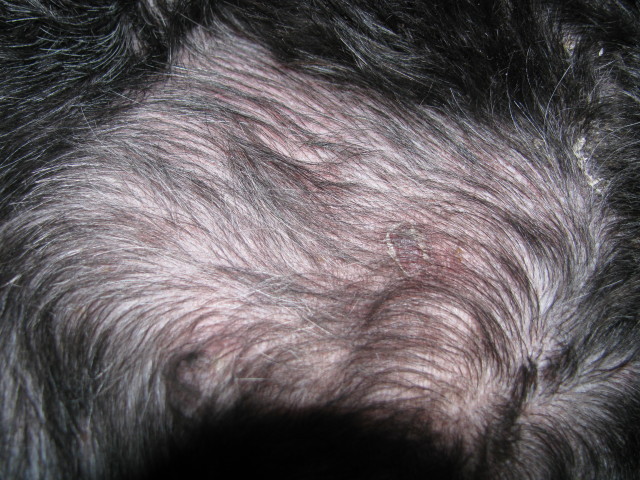QuestionOur 14-yr.-old all-american dog had surgery to remove bladder stones of calcium oxalate. We were told to look into a diet that can reduce the chance of recurrence. Apparently that should be low protein/low salt. Vet' wasn't very helpful except
to 'check Waltham's or Hill's'. Looked around online and can't seem to find what dog food
is low protein & low salt yet good for his main meal. Can you please give us your advice on this type diet and where we might order some? Thank you very much. (PS/He's doing great and only a few days since the surgery).
AnswerHi, Lou. I'm sorry your vet wasn't very helpful. Here is some information I was able to find re: calcium oxalate bladder stones:
**While special diets cannot dissolve existing stones, they do help prevent the development of new stones. Prevention centers on creating a urinary environment with minimal calcium and minimal oxalate as well as creating a urine pH that is not conducive to calcium oxalate formation.
The usual diets recommended include:
Hills K/D diet
Hills U/D diet
Select Care Modified diet
CNM NF from Purina
Waltham's Low Protein Diet
For each of the above diets, the canned form is preferrable to dry so as to increase water consumption and thus help dilute the urine. It is especially important to avoid table scraps when caring for an oxalate stone forming dog. Still, no one wants their dog to live life without treats. The following treats are acceptable for oxalate stone-forming dogs: plain cooked chicken, plain cooked turkey, eggs, rice, popcorn, peas, and pasta.
Many pet owners ask if any non-prescription diets are appropriate for this condition. None are.
There are some medications which can increase the risk of calcium oxalate stone development and these should be avoided. Prednisoneand other cortisone-type medications (commonly used for itchy skin, arthritis, inflammatory bowel disease, and other inflammatory conditions) should be avoided if possible. Furosemide(brand name: Lasix) is a diuretic mostly used in the treatment of heart failure. It also leads to excess calcium in urine. Should a diuretic be needed for a patient at risk for calcium oxalate stones, one from the thiazide class (see later) would be a better choice. Supplementation with Vitamins D or C also increase risk of forming oxalate stones; such supplementation should be discontinued. (http://www.veterinarypartner.com/Content.plx?P=A&S=0&C=0&A=662)
** Magnesium helps stop oxalate stones from developing - even when the pH is incorrect and the calcium levels are excessive. Vitamin D should also be restricted to minimal amounts, as Vitamin D will tend to produce calcium deposits throughout the body, including the kidneys. Even marginally excessive levels of Vitamin D, in animals that tend to produce oxalate stones, can lead to more oxalate crystals that can form into stones in the kidney and bladder.
Vitamin C should not be supplemented in the diet for these animals, as it can be converted to oxalates in the kidneys. Vitamin C will also produce more acidity in the urine, also producing more problems.
To help prevent oxalate stones, we need to keep the urine pH more alkaline. Urine should be tested for its acidity or alkalinity using a test called "pH." A pH test showing 7.0 (neutral) or higher (above 7.0 means the urine is more alkaline) is the goal. Your companion animal should have urine pH tests done routinely. We recommend acquiring litmus paper strips and testing the urine yourself frequently. You can buy pH test paper at your local pharmacist.
Adding baking soda to the diet at about 1/16-1/4 teaspoon per meal, well mixed into the meal, will often keep the pH in the neutral to alkaline range. (http://www.wellvet.com/oxalatestonediet.html) On this page is also information on how to make your own homemade diet.
While I do not recommend Purina or Hill's foods under normal circumstances, for dogs with certain conditions, the prescription foods made by these companies are the only option. Of course, I am not a vet and I do not have experience with the condition that your dog has, so before you do anything, you should consult your vet. You may also consider talking to a homeopathic vet. Many times homeopathic 'treatments' work better than 'conventional' ones. Again, I don't have a lot of experience when it comes to herbal remedies, so talking to a vet that specializes in homeopathy is your best bet in that respect.
Whatever you choose, I wish you nothing but the best. I hope I've been able to help in some small way, and please let me know if I can be of further assistance.
Kristen

 Dog fur is flaking off, scabbing, itching like crazy
Question
zacks tummy
Hi,
We have a four-year-old cockap
Dog fur is flaking off, scabbing, itching like crazy
Question
zacks tummy
Hi,
We have a four-year-old cockap
 aggressive kids and dogs
QuestionI have a hyper aggressive 6 yr old who always p
aggressive kids and dogs
QuestionI have a hyper aggressive 6 yr old who always p
 ideas of what breed dog this is?
Question
dog dog
i was wondering if anyone
ideas of what breed dog this is?
Question
dog dog
i was wondering if anyone
 8wk old pup biting
Question
pebbles
hi i wonder if u can help me my
8wk old pup biting
Question
pebbles
hi i wonder if u can help me my
 maltese with brown ears
Question
maltese
we bought a dog and owner said its pur
maltese with brown ears
Question
maltese
we bought a dog and owner said its pur